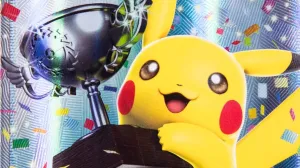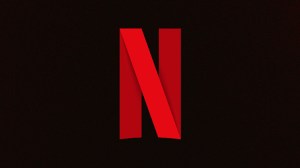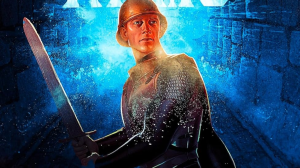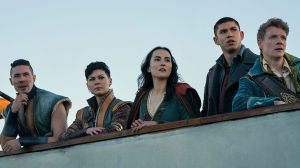Last week, Disney+ launched Safety, a new film from director Reginald Hudlin that centers on Ray McElrathbey, a former college football player. During his time as a scholarship player at Clemson, who had to adopt his young brother while he (Ray) was still in college. When people tried to help out with the stresses and costs of raising a child, McElrathbey caught the ire of the NCAA, who accused him of taking financial kickbacks in exchange for his play at Clemson. The film details this tumultuous period in his life, starring actors Jay Reeves and Kacey Fox — who got to know McElrathbey on set.
Videos by ComicBook.com
The former football player, who now live in Atlanta with his family, helped advise on set in a couple of ways. Obviously, he was there to bounce ideas off of in terms of characterization — but he was also there to train the on-camera Clemson Tigers, who were mostly just actors who needed to be kept in tip-top shape.
McElrathbey joined ComicBook.com to talk about the project.
You have had a lot of attention in your life, but right now you’re living a fairly normal existence. Is it surreal to see somebody playing you on the screen?
Of course, of course. I’m I’m so regular. And I feel like the, like the thing that I’m not this popular, but it seems that I’m getting more popular as the days go. So it’s exciting to me.
I talked to some of the kids who were in the movie and they were very excited to have you on set to be able to kind of talk to you and pick your brain about stuff. What was that like?
I wanted to put my stuff into it a lot because although they are professionals and they’re doing what they do, whatever they do will be kind of tied to me. A great bit of their performances would be linked to me forever. They could go on and do different performances. It’s a wonderful thing to get to actually sit there and watch people re-enact things in your life that you experienced. To know that they admire you for this opportunity is crazy for me. Cause never would I have imagined. I’ve done a lot of great things with my life, I would like to think, but I know a lot of people who’ve done a lot of great things, but they don’t have movies. And so it’s humbling and I’m blessed to be in this place, where I’m at, and to be able to experience this.
They talked about you training all the guys. In fact, Ms. Fox said that she came for exactly one day and then “noped” out of it. Was that mostly just a bonding experience or did you think it was important that they physically be able to do like the football stuff, even though that wasn’t a big part of the actual narrative?
It was both it was a bonding experience, but it’s also an opportunity to give, to get them into a mode for which they needed to act, because there was some things in there, a lot of scenes that didn’t make the movie as well, where they were working out, that you didn’t see.
So I wanted them to know that this is what it was actually was like working out, so they can give it authenticity more than anything. They did well at that. That’s why I had been working with Jay from the moment I found out he received the script, and that he was going to be the guy who played me.
It was a wonderful experience to help out, to add my 2 cents and then, coach the [actors], because one thing that you can’t professionally do is mimic someone better than they do it — because I’m the best version of me, I think.
I think that inevitably the movie is going to draw comparisons to The Blind Side, as they both deal with the NCAA issue and things like that. Did you enjoy that film?
Yes, I enjoyed The Blind Side. There were some parts in there cause Michael Oher eventually came out and was talking about all the things that he felt was they took too much dramatic licenses with. I wasn’t bothered by it. I’m not sure why he even cared.
Were you concerned about overseeing those parts of the film, to minimize that creative license for your story? Or to soften some of the edges where you could be seen as a bit selfish?
There were times where I wondered how I might seem to the broader audience, but I thought it was necessary to let people know that I’m not perfect. I don’t want people to get the idea and think that what I did for my brother is something that makes me special, or makes me more capable than most. The only thing difference between me and you was that I made a decision to do something and you might have not, or not had to.
So I think what people to learn that, Hey, your decisions affect your life and you can affect your life by the decisions that you make. Sometimes they won’t be all right decisions. And I don’t like to masquerade around; I made a whole bunch of bad decisions as far as parenting goes. I wasn’t the best parent. There’s a lot of things that I do better with my son that I didn’t do with my brother. And that’s just comes from growing. And the process is that you, you get better, you don’t have to be the best. You have to work towards being the best. And I wanted people to see that in the movie and I hope that’s what they got from it.
You talked about the importance of the choices you make, and you say that in the film. There’s the scene where you’re being confronted by your coach and that he uses that same language almost as a bludgeon against you. Was that something that you were pleased to see kind of in the movie?
I felt great about it, because I think it’s necessary in that part of the movie. You can see that, hey, all my moments with my coaches, weren’t great. There were very contentious moments with some of my coaches and that’s just how it is and you can work through it, you can talk it over and you can keep it going.
And that’s the part that I want people to understand– that even with my mom and my life and my family, with everybody, with anything, if you continue to move forward, you can get through it. And I think everybody needs to work towards working past things as opposed to holding onto things that don’t make them feel good.
What was it like working with with Reginald Hudlin? Because that’ a guy who has been in our space for years.
Yes. I actually want him to take my movie and make an adaptation to your space to make a comic geared towards my life story. I think that’ll be a wonderful — maybe some type of animation with it as well.
Working with a guy like Reggie, I look at him like, y’all look at him. They guy’s a legend. That’s the dude. Like, he made some of the most prominent things that you, that you call great work. Reggie was also a wonderful human being as well as a wonderful creator, director, designer and producer, whatever you want to call him. He’s a wonderful individual and I’m glad he’s forever a part of my life and my story.
So some of the younger cast don’t remember the tube TVs and stuff. They were all five. For you, was it kind of strange walking into a recreation of your old house?
Of course. I got nostalgic being in those moments, cause I asked him to start adding things to those times. There were some things that took me back. I wanted them to have a bumper sticker for my high school that I had in my room. I had the one that had my Letterman’s M for my high school, as well as some other things that I just want to get the room because they took me back to a time that made me feel real great. And that was important to me. And I’m glad that even with the music can take people back to a time that it felt like things were better, I think.
Safety is now streaming on Disney+.








